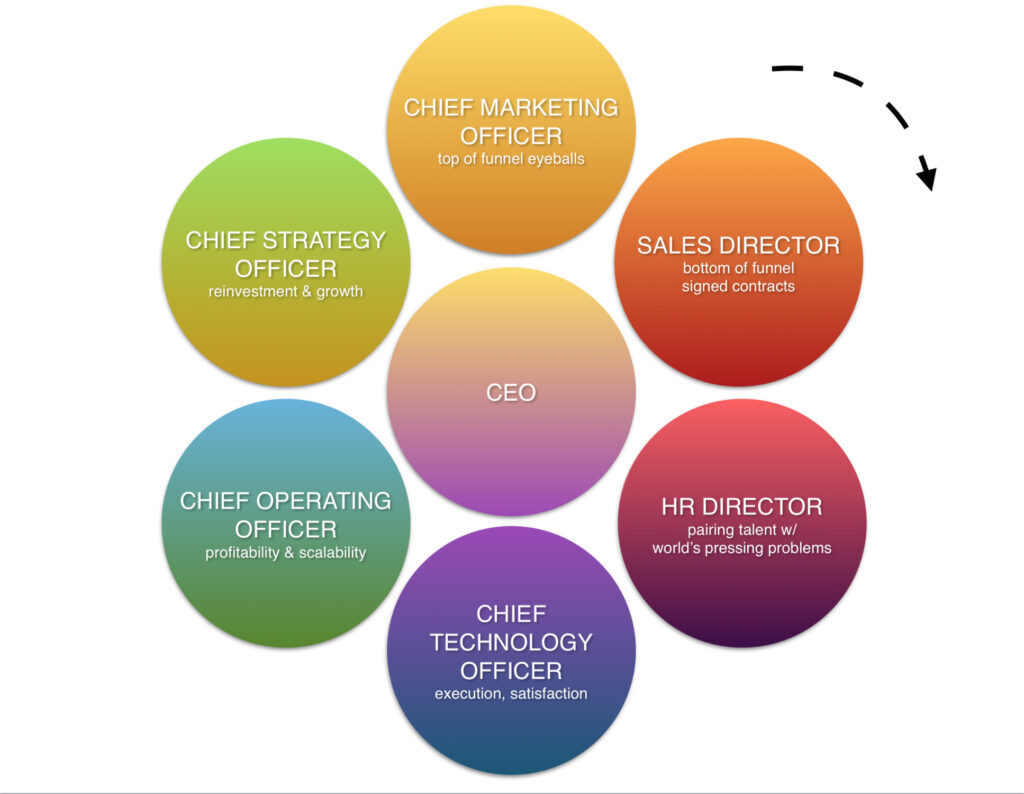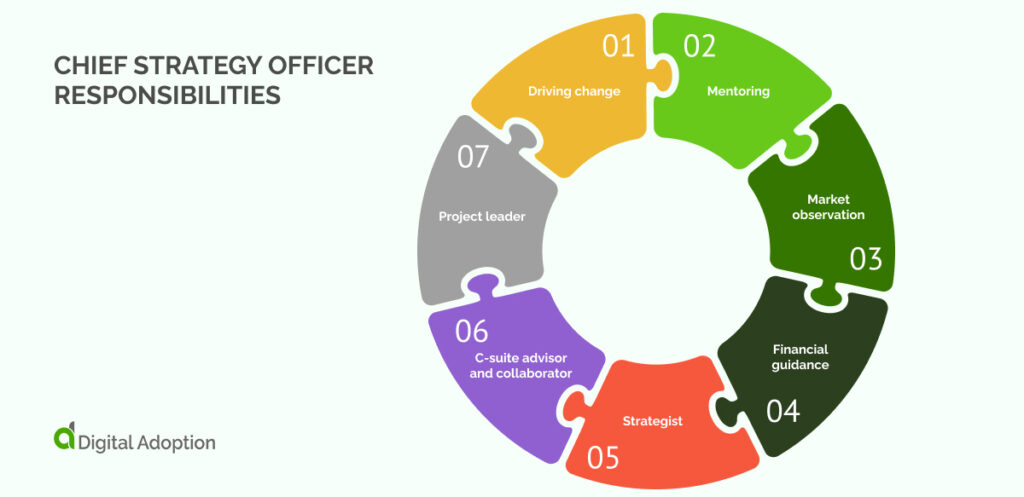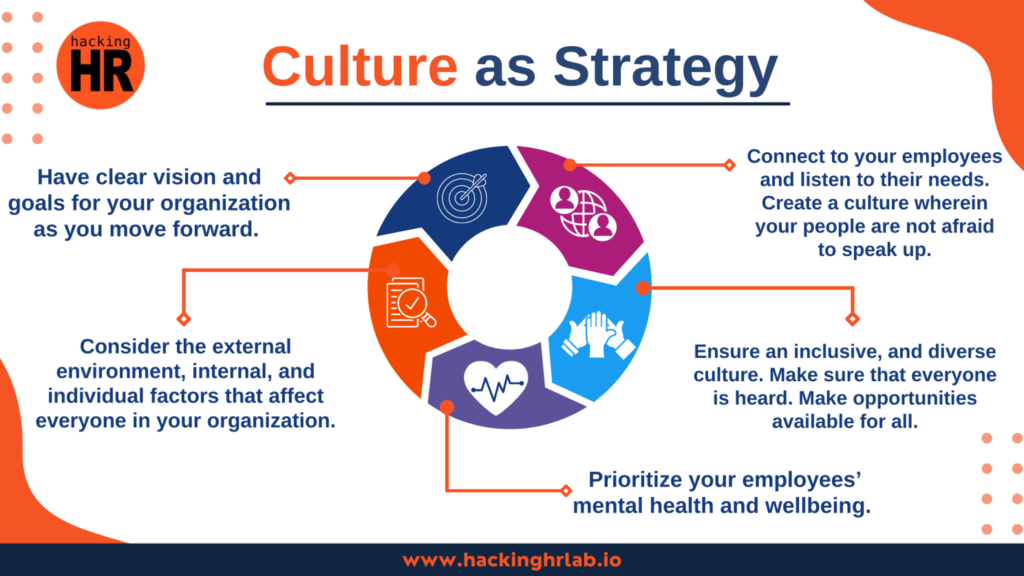Strategy has become the defining element of business success in today’s volatile, uncertain, complex, and ambiguous (VUCA) world. To stay competitive, organizations need leaders who can cut through complexity and envision clear paths forward. Enter the Chief Strategy Officer (CSO)—a rising star in the C-suite, whose influence and necessity are rapidly growing.
While the CSO role started as a long-term planning function, it has evolved into something far more transformational. Today’s CSOs drive enterprise-wide innovation, align cross-functional priorities, and lead organizations through uncharted waters. This article explores the evolution of the CSO role, why it has gained prominence, and the strategic value these leaders bring to organizations.
 Image Source: Josh Oakhurst
Image Source: Josh Oakhurst
The Evolution of the CSO Role
Historically, CSOs were seen as strategic planners or in-house consultants. Their primary focus was developing long-term strategies and goal-setting. While impactful, this approach often left them removed from the execution process. Consequently, the gap between strategy and implementation created challenges for many organizations.
Modern CSOs, however, fill this gap. They are not just architects of strategy but also drivers of execution and enterprise-wide transformation. This expanded role allows them to orchestrate initiatives that translate a company’s vision into measurable outcomes, ensuring alignment and agility throughout the organization.
Key Shift: Planning vs. Execution
Unlike their predecessors, today’s CSOs are change agents. They collaborate across departments, breaking down silos and driving alignment around core strategic priorities. The focus is no longer just on drawing up a roadmap but also ensuring that each department contributes to organizational goals. Think of CSOs as an enterprise-wide glue binding strategist.
Why Companies Are Investing in CSOs Now

Adapting to Market Complexity
The global business landscape is more complex than ever before. Rapid technological advancements, shifting consumer demands, and market fragmentation are just a few factors contributing to this complexity. Organizations need someone who can sense and respond to these changes strategically. CSOs excel in interpreting market trends and guiding businesses toward opportunities that align with both short-term demands and long-term goals.
Filling the CEO’s Strategic Execution Gap
CEOs are often inundated with operational responsibilities, leaving little room for strategic focus. According to a study by Bridges Consultancy, over 48% of CEOs spend less than one day per month on strategy development. This limited bandwidth creates a gap that the CSO role is perfectly tailored to fill. Acting as the CEO’s strategic right hand, CSOs ensure consistent focus on high-priority initiatives while enabling the CEO to concentrate on leading the organization.
Thriving in Key Sectors
The rise of CSOs is particularly evident in sectors such as technology, healthcare, and financial services. Industries where agility, scalability, and innovation are crucial often prioritize having a dedicated strategic leader. For example, tech companies leverage CSOs to manage digital transformation initiatives, while healthcare organizations rely on them to balance patient-centric care models with operational efficiency.
Core Responsibilities and Strategic Impact
Translating Vision into Action
CSOs transform abstract vision statements into actionable strategies. They work closely with C-suite leaders, ensuring that every departmental goal aligns with the broader business objectives. From overseeing mergers and acquisitions (M&A) to launching new product lines, their influence extends across all operations.
Competitive Intelligence & Scenario Planning
Effective CSOs are the organization’s eyes and ears. They stay ahead of market shifts, monitor competitive landscapes, and develop data-driven insights to guide decision-making. By incorporating scenario planning and predictive analytics, they can prepare their organizations for multiple future scenarios, ensuring resilience even amidst uncertainty.
Bridging Competing Priorities
Often, one of a CSO’s unsung roles is acting as a neutral mediator within the C-suite. With departments like marketing, operations, and finance pulling in different directions, the CSO ensures alignment, promoting collaboration and coherence.
Traits of an Effective CSO
Systems Thinking and Analytical Agility
Great CSOs have a knack for understanding the broad impact of complex systems. They can foresee how a single strategic decision will ripple through an organization, ensuring all subsequent actions are coordinated.
Influence Without Authority
Unlike other C-suite roles, CSOs often lack direct authority over departments. Instead, they rely on influence, diplomacy, and trusted advisor status to drive change. The ability to gain buy-in from diverse stakeholders is critical to their success.
Comfort with Ambiguity
The business world is unpredictable, requiring CSOs to remain calm and organized amidst uncertainty. A successful CSO can pivot seamlessly between strategies when market dynamics shift, ensuring the organization stays resilient.

Strategy as a Culture, Not a Department
The rise of the CSO underscores a broader trend among leading organizations: embedding strategy into their culture. Rather than treating strategy as an annual exercise, they foster constant strategic thinking across all levels of leadership.
Organizations without a CSO or a similar strategic leader risk falling behind competitors who prioritize agility and alignment. As businesses continue to operate in increasingly dynamic environments, the CSO role will only grow in influence and necessity.
To truly unlock sustained growth and innovation, companies must invest in strategic leadership that not only plans but transforms. The rise of the CSO is more than just a trend; it’s a testament to the centrality of strategy in modern business success.
The future of strategy demands more than operational excellence—it calls for conscious, integrated leadership. Leadership Circle’s certification program prepares leaders to rise to that call, equipping them to align vision with execution and lead with purpose.
Become the strategist your organization needs—get certified today.






Great information shared.. really enjoyed reading this post thank you author for sharing this post .. appreciated
The evolution of the CSO role from long-term planner to enterprise-wide innovator really speaks to how strategy itself has changed in a VUCA world. It’s interesting to see how CSOs are now expected to bridge functional silos and guide cultural transformation, not just set direction. I’d love to hear more about how organizations are preparing leaders for this kind of complexity.
I just like the helpful information you provide in your articles
Great information shared.. really enjoyed reading this post thank you author for sharing this post .. appreciated
Great information shared.. really enjoyed reading this post thank you author for sharing this post .. appreciated
I like the efforts you have put in this, regards for all the great content.